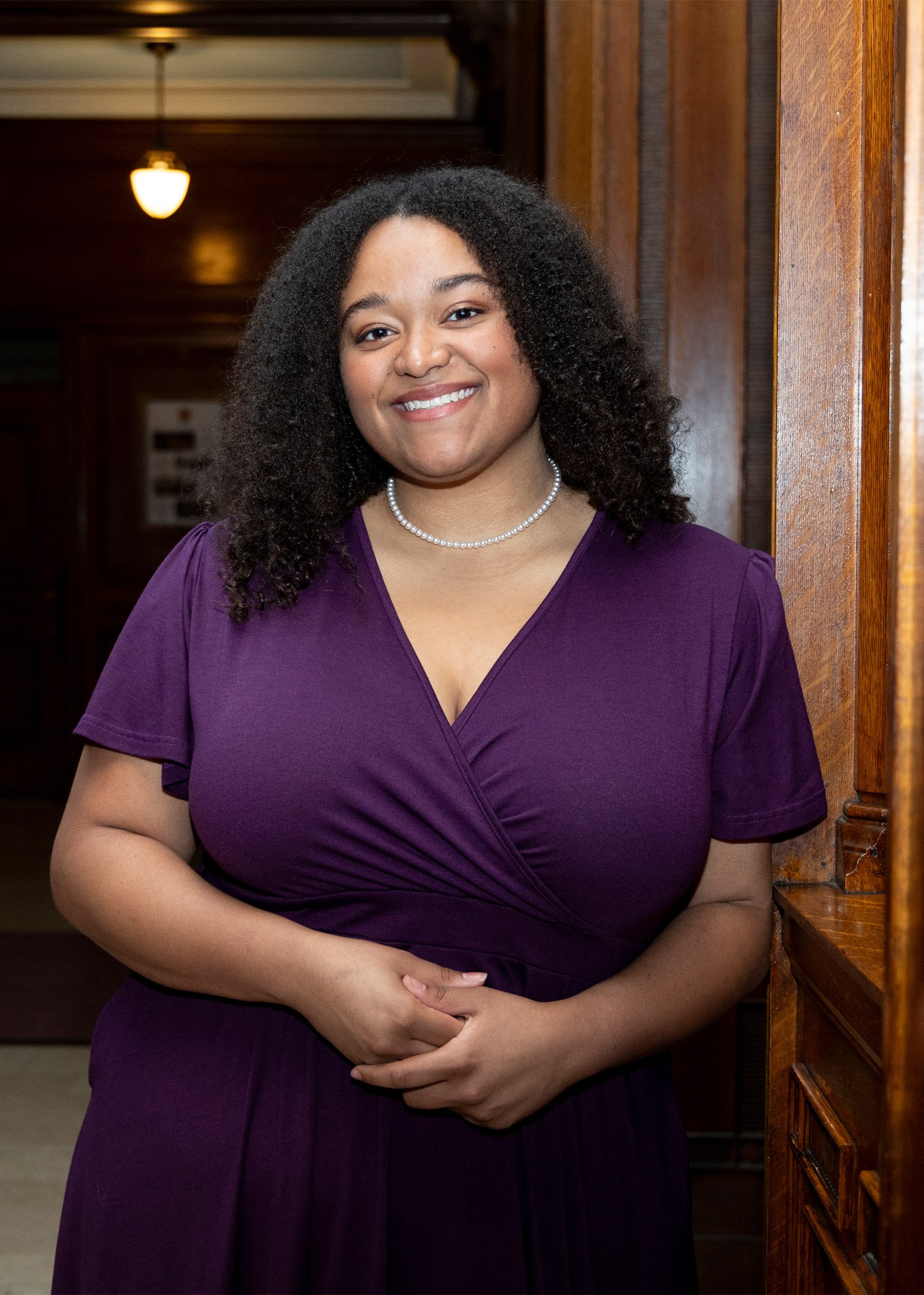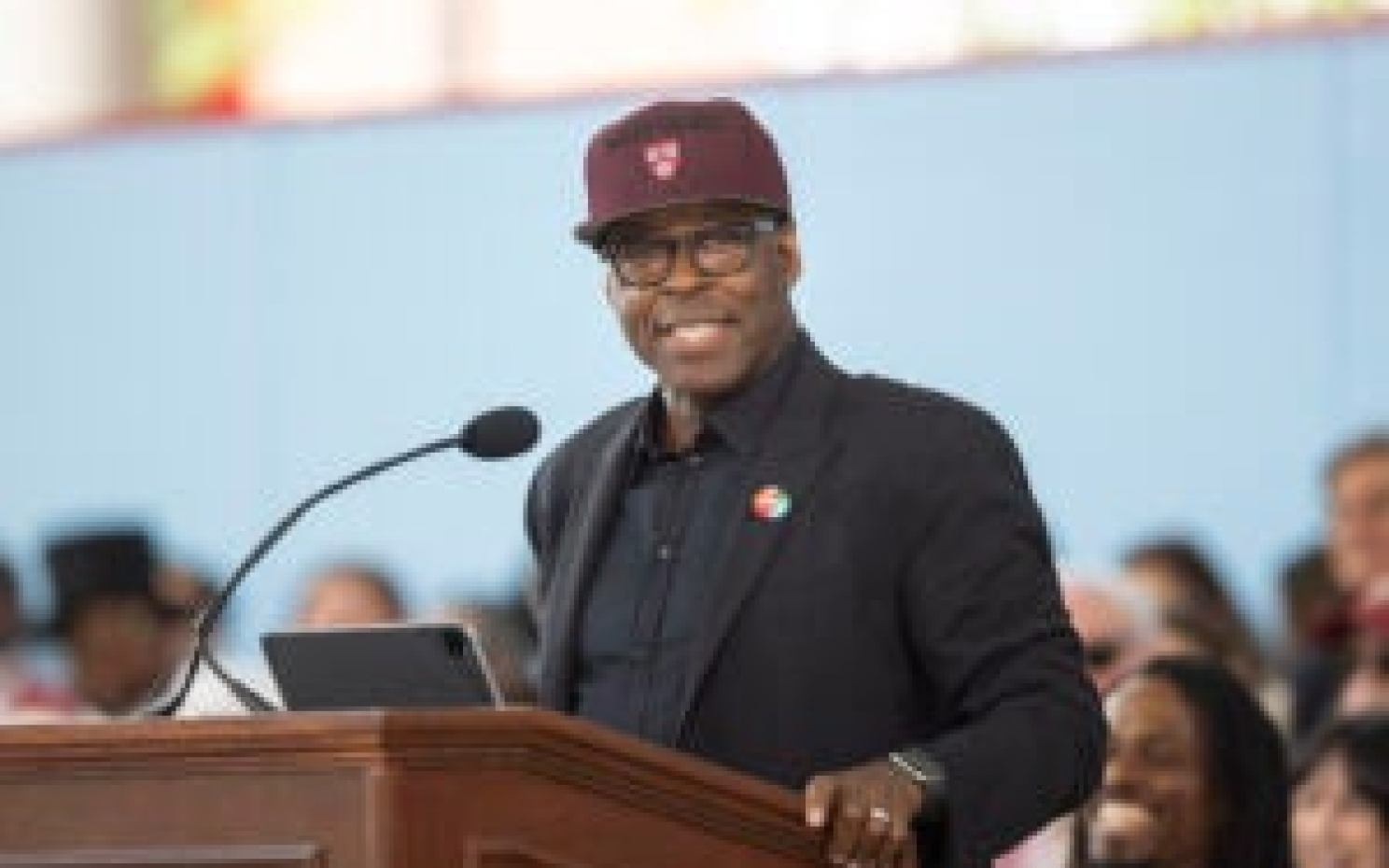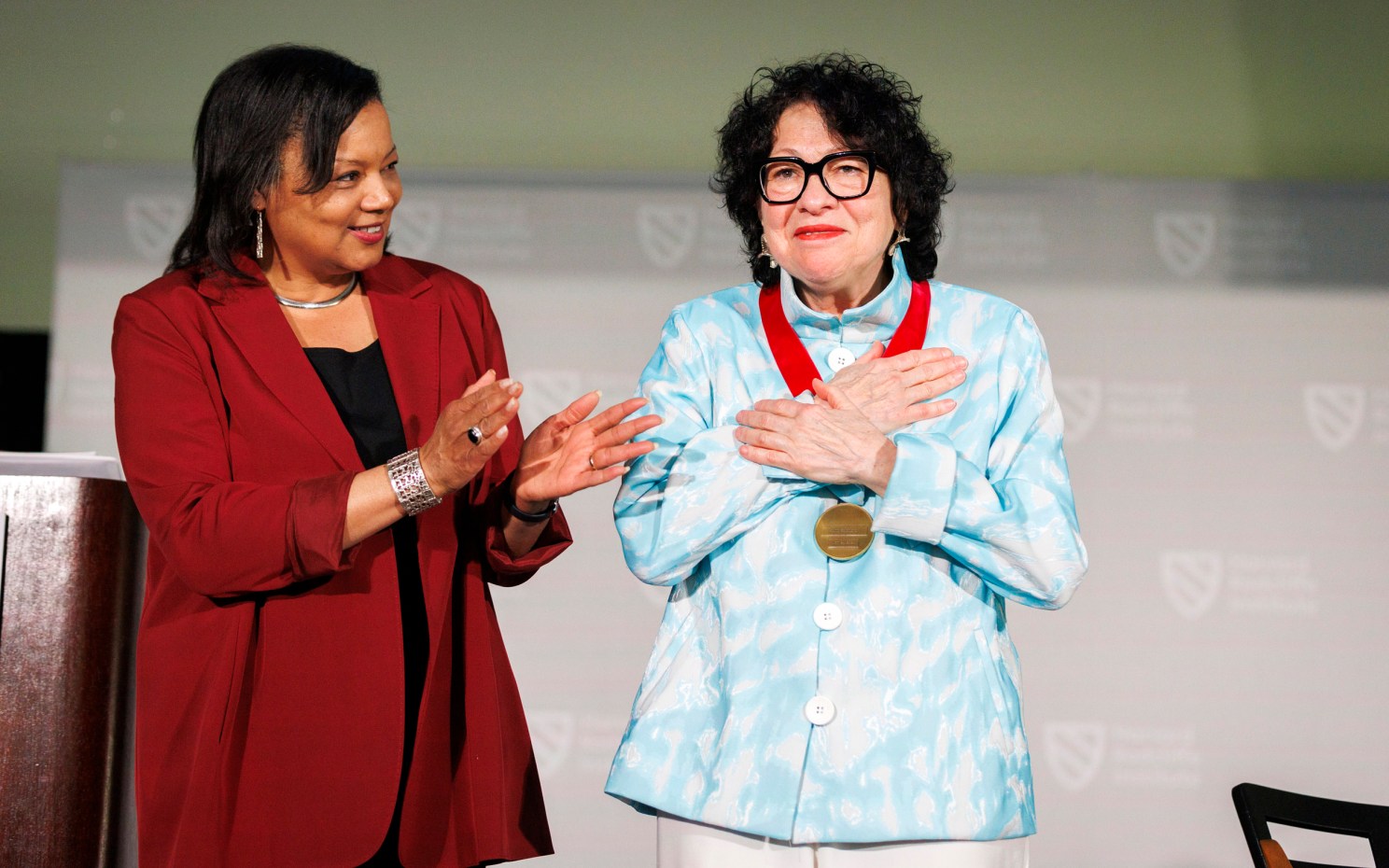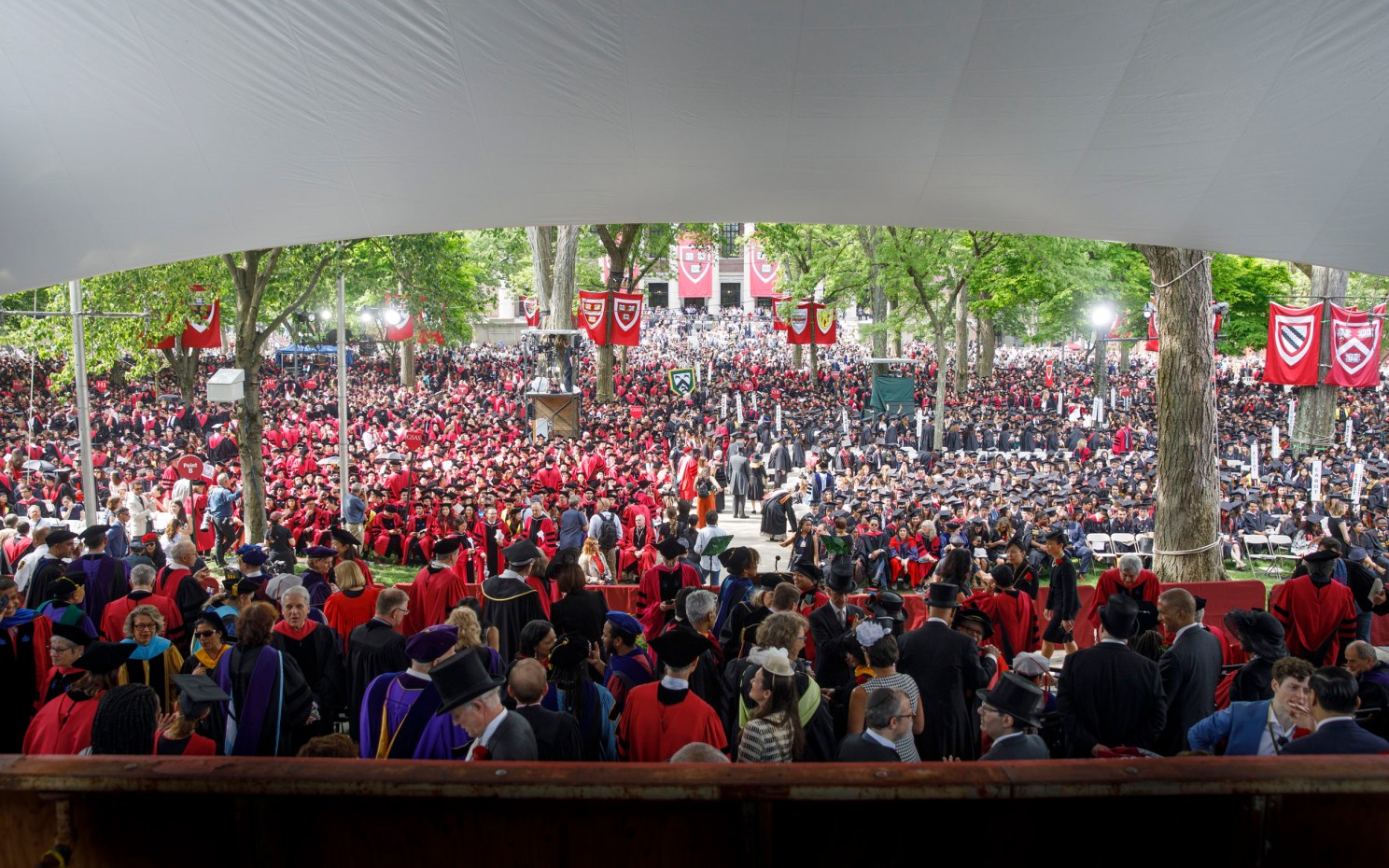
Photo by Dylan Goodman
A change of mind, heart, and soul
Choosing Harvard took LyLena Estabine down an uncertain path. The former student co-president has no regrets.
Part of the Commencement 2024 series
A collection of stories covering Harvard University’s 373rd Commencement.
When LyLena Estabine was applying to college as a high schooler in Olathe, Kansas, she wanted to become a civil engineer. Harvard didn’t offer that field of study, but her parents nudged her to apply anyway.
Estabine got accepted to many of the schools she’d applied to — including Harvard. She faced a dilemma: pursue her dream of becoming a civil engineer or pursue the unknown in Cambridge.
She went with Harvard and has no regrets. Not only did Estabine forge a new scholarly path there that combined her love of numbers and people, but she also discovered a knack for leadership and got involved in student government and public service. She also changed faiths, shifted political leanings, released two musical albums, and was inducted into Phi Beta Kappa.
“Looking back now, I can be sure that this is where God wanted me to be,” she said. “The people that I’ve met here and the experiences that I’ve had … I could have only had at a school like Harvard.”
Once Estabine committed to an uncertain path at Harvard, she first gave economics a try. She liked the quantitative aspects of the field but wanted to incorporate social issues. Eventually, she decided to concentrate in sociology with a track in data analytics.
“It is dedicated to asking these questions about how we can live and work together better,” she said. “I really felt like it was a discipline that sparked my curiosity and engaged me intellectually.”
Estabine said quantitative research can be helpful when evaluating whether systems are working, but it’s crucial to talk to the actual people behind the numbers.
She applied that lesson during her sophomore year while serving on the Undergraduate Council. When the student body decided to transition to a new form of government, Estabine was an integral part of the structure that took its place: The Harvard Undergraduate Association.
“LyLena takes the approach of servant leadership, this importance of giving back to something that is greater than one person.”
Jason Meier, the associate dean for student engagement
“We realized that the system in place was not properly structured to facilitate student engagement and student changemaking within the larger system of Harvard,” she said. Once the HUA was established, Estabine was elected co-president, alongside Travis Allen Johnson.
Jason Meier, the associate dean for student engagement in the Dean of Students Office, was very involved in the development of this new governing body. He had only just started in his position when he met Estabine, and said that his early days in the role were inseparable from her support.
“LyLena takes the approach of servant leadership, this importance of giving back to something that is greater than one person,” Meier said. “Not only did I have this incredibly kind, thoughtful person to work alongside, but I felt like the student body was in good hands with her leadership and her very gentle, reassuring nature.”
Estabine’s leadership style developed in part from her commitment to the Catholic faith. While she was raised in a Christian family, she underwent a spiritual awakening while at the College. She was looking for answers to some of life’s big questions and found guidance and comfort at St. Paul’s Parish in Harvard Square.
Patrick Fiorillo — who recently took a new assignment within the Archdiocese of Boston — met Estabine during her junior year while he served as the Undergraduate Catholic Chaplain at St. Paul’s. “I got to see firsthand her own kind of spiritual journey quest and see her wrestle with many deep questions.”
After Estabine converted to Catholicism, she served her faith community as a Harvard Catholic Forum Fellow. In this role, she encouraged other students to bring their whole selves to conversations. Fiorillo said that Estabine had a natural gift for helping students bring their “heart and mind and body and soul.”
“She clearly has an interest in applying her gifts and talents for the good of society at large and other people,” he said.
Estabine’s various leadership roles did not come without challenges. There were a few points when students questioned her ability to lead the student body. For one, she was open about her religious beliefs. She also became politically conservative during her time at Harvard.
“No one really understood that I could be those things and also serve them,” Estabine said.
Meier, who worked alongside Estabine during this time, said it was difficult to see her attacked, often anonymously. Even during this time, he was struck by her maturity and grace.
“She never let it deter her work,” he said. “She continued to trudge forward because she knew serving students would be more important and that’s where she needed to put her energy.”
During her co-presidency Estabine helped establish multiple resources for the Harvard community. One is the Crimson Career Closet, a collection of professional attire available for students to rent located in the Smith Campus Center.
As a singer and a songwriter, she received the First-Year Creativity Award and performed at multiple events, including at Claudine Gay’s presidential inauguration. And over the past few years, she released Vol. I and Vol. II of her music project, “Songs of Prophets.”
As for what’s next, Estabine, who was inducted into the Alpha Iota Chapter of Phi Beta Kappa, is entering another time of uncertainty. As she leaves campus, she will be pursuing work as an analyst in the D.C. area.
She offered this advice for students who come after her: “Be fully who you are and don’t struggle to fit yourself into one box fully. You can change always, and you should.”







